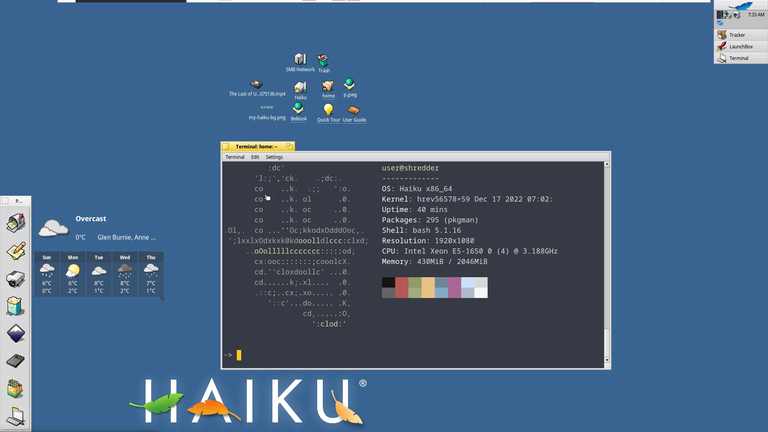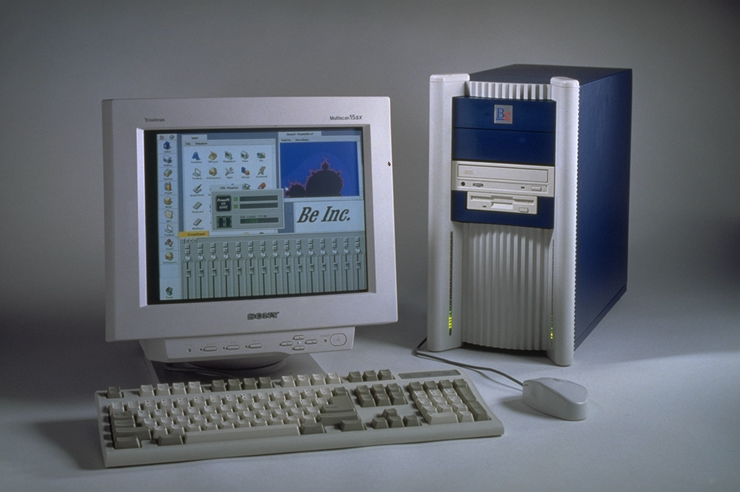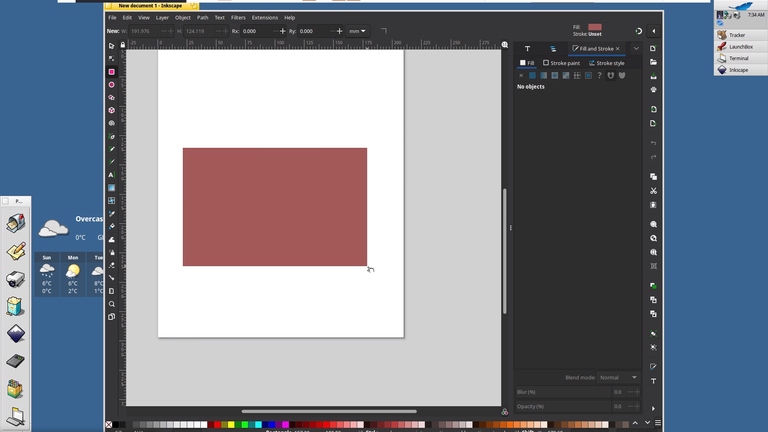I'm preparing for a video on Haiku
Haiku is an operating system I've been meaning to do a video on for a long time now.
I've actually played around with it for a few years, but with the latest release this past December I've really dug into it this time.
I've always considered it one of the more complete operating systems outside of Windows, Mac, Unix, Linux, but I'm blown away by how mature it is now.
Deskbar, Weather Applet, and Terminal:

This was almost Mac OSX(well sort of..)
Back in 1990 former Apple engineers and executives created a new company called Be Inc.
They developed a new operating system from scratch called 'BeOS' designed for media production work. A space that was mostly dominated by Apple or high-end Unix workstations with exotic hardware.
However, BeOS also took a lot of inspiration from the Commodore Amiga, and included modern features such as:
- Symmetrical Multiprocessing Support
- Preepmtive Multi-Threaded Processes
- Multi-tasking as a priority
- Object Oriented and written entirely in C++
- Powerful developer API
The BeBox was released in 1995
It included dual PowerPC 603 processors. Apple also used PowerPC, but only their most expensive system had a dual-CPU option.

Despite the advantages it didn't sell very well, and so BeOS was also ported to run on Apple PowerPC computers. Probably in an attempt to get Apple's attention, and it worked.
As Apple was trying to replace their aging Classic MacOS 9 they were in talks with both Be Inc. & Steve Jobs' NeXt Computers.
Obviously NeXt was bought by Apple for $400 million, and in 2001 BeOS was sold for pitiful $11 million and BeOS was basically gone.
That same year the Open BeOS project was started, and later renamed to Haiku. Haiku is entirely backwards compatible with BeOS software, and uses a kernel developed by a former BeOS developer.
Inkscape Running on Haiku!!!

A lot of software has been ported, particularly software that I use such as:
- Inkscape
- Gimp
- Krtia
- LMMS
It even played my 1080p .mp4 recording of The Last of Us 2 from my Playstation without needing to install codecs/extras which is pretty wild.
I also currently have no audio support, but that's because I'm using the 64-bit version in VMware. Simply using the 32-bit instead supposedly solves that problem.
It has functioning MIDI support, synchronized play/rec transport, and even built-in sound processing effects.
The entire OS is very snappy too.
The window management, file manager, and just about everything in Haiku is totally unique.
There are some drawbacks too such as no Firefox or Chrome browser. You only have Haiku's own Web-Positive browser which isn't bad, but I've also ran into problems using it with things like Dropbox.
My upcoming video will have the brief history of BeOS, and a thorough demonstration of Haiku.
So keep an eye out for it as I'll share it here when it's done!
Thanks for reading.
-- Jay,
DS-Tech Media
Congratulations @ds-tech! You received a personal badge!
You can view your badges on your board and compare yourself to others in the Ranking
Check out our last posts:
It's a pity that this system is still just an interesting toy for virtual machines.
Well I don't know about that.
The main limitation I currently see is the web browser.
I was using Dropbox in the Web Positive browser and it was horribly slow, and Youtube also didn't seem to work.
I don't understand what's preventing them from porting Chrome or Firefox, but I'm guessing it's limitations in the BeOS API.
The system itself is built with a fork they have to maintain of GCC 2 & 7 because they have to maintain BeOS compatibility.
But it's impressive how well everything works. Inkscape & GIMP both work well. It plays back 1080p video smoothly.
There's a fair amount of software ported.
It's almost good enough to be a daily driver.